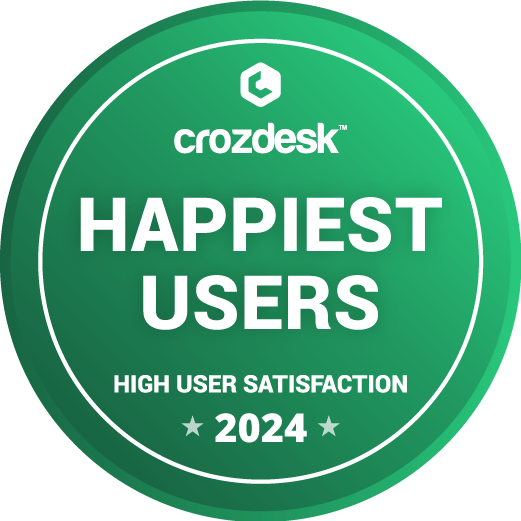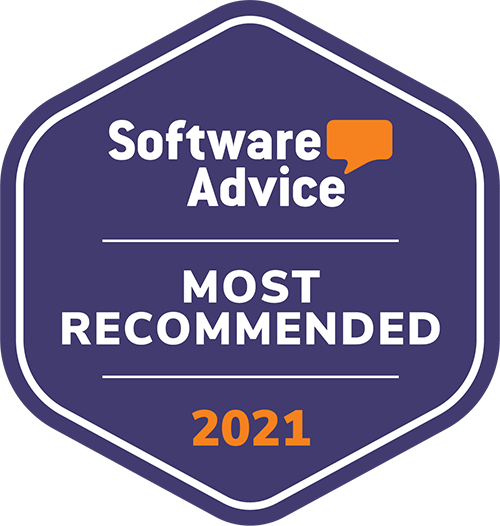It wasn’t a hard choice to select SmartSurvey. Not only did they understand what we were looking to achieve right from the start, they presented a solution that represented everything we needed.
Mental Health Surveys
Mental Health Surveys

The prevalence of mental health issues is increasing worldwide.
According to the World Health Organisation (WHO), there has been a 13% rise in mental health conditions in the past decade alone. And considering the growing awareness of mental health issues, due in part to the many sports people and celebrities opening about their own experiences, it’s not surprising to see there’s been an increasing demand for mental health surveys and services, to better assess peoples’ mental health.
From asking individuals to rate their own mental health and whether they’ve recently experienced any symptoms associated with it, to asking them lifestyle questions including how well they cope with stress, a short survey of your employees, teachers, students or patients can quickly reveal the strength of their mental health and any individuals that might require support.
Areas of mental health that you could survey
From workplaces and educational settings to the wide variety of healthcare providers working to support those struggling with mental health issues, depending on your organisation and the audiences you’re working with, there could be any number of different mental health areas you need to assess through your survey questions.
Here’s a summary of some of the more common areas of mental health, you may come into contact with…
Depression
From major depression and dysthymia to bipolar disorder and seasonal depression. While the symptoms of depression can be quite wide, one of the main indicators is that it often leaves sufferers unable to perform their daily activities. If left untreated symptoms can last weeks, months, or even years.
Anxiety
Again, there can be a range of different anxiety types, resulting in a series of symptoms from and an upset stomach and diarrhoea to feeling faint or trouble breathing. However, more generally anxiety is associated with a feeling of nervousness, apprehension, fear or worry.
PTSD (post-traumatic stress disorder)
PTSD is a severe disorder typically triggered as a result of a traumatic event. This could include anything from exposure to actual or threatened death and serious injury, or the result of physical, sexual or severe emotional abuse.
With PTSD your brain continues to react with excessive fear and nervousness after you have experienced or witnessed trauma or a terrifying event, even though that original trauma is over.
Trauma
Similarly, trauma can be the resultant effect of a physical or psychological event, producing a range of symptoms from headaches, lethargy and nausea to more psychological effects such as flashbacks, excessive anxiety, irritation, confusion, aggression and an inability to concentrate.
Psychosis
Psychosis is often described as a “loss of reality” or a “break from reality” because it makes you experience or believe things that aren’t real. It can change the way you think, act, feel or sense things. Psychosis can be very scary and confusing, and it can significantly disrupt your life.
Where to use mental health surveys
Following the outbreak of the Covid 19 pandemic and the blurring of the lines between the workplace, place of study and the home, during and following the many lockdowns, there has never been a greater need to assess people’s well-being.
Here’s some of the most likely environments where you might need to carry out a mental health survey…
Workplaces
From getting them to rate their levels of well-being and how well they’re coping with their workload, to examining how well they’re able to manage stress and maintain a healthy work-life balance. By running mental health surveys alongside other surveys, that you regularly check in on your staff with such as the employee pulse survey, you can get a better feel for how well they’re coping and any employees that might require extra support.
Similarly, with more of us operating under a hybrid working model, more niche questionnaires can be used to get staff thoughts on remote working and the return to work for those that are still working away from the office full-time.
Educational settings
From schools to colleges and universities, workplaces are not the only environments to see a rise in mental health issues. 94% of teachers have seen an increase in pupils displaying mental health issues, according to a survey from the YoungMinds mental health charity.
Whether they believe a pupil or student could be experiencing anxiety or suffering from cyberbullying, or alternatively struggling with an eating disorder or be self-harming. Whatever issue a pupil or student could be wrestling with, a mental health survey administered amongst teachers or directly to students themselves who are over the age of 18, could help to identify any problems and get support to where it’s most needed. See also: Student Mental Health Check-in survey template.
The use of mental health surveys could be extended to teachers too, to assess how well they are coping with the demands of their job and identify those who could benefit from additional support.
Care settings
From a patient’s GP, social worker or health visitor to a psychologist, psychiatrist or a member of a community mental health team. Depending on a patient’s own individual circumstances, there could be a wide variety of different healthcare professionals involved in assessing their ongoing mental health.
From asking them questions related to the symptoms of mental health to questions about their lifestyle and family background. The mental health survey is a really valuable tool in the armoury of a professional trying to assess the severity of an individual’s condition.
Alongside their use in assisting with individual patient care, mental health surveys could also be used anonymously and in aggregate for research purposes, together with data collected from a range of other sources for the publication of reports.
Set up your survey with ease
SmartSurvey offer a growing number of template healthcare questionnaires to help research professionals get started quickly.
How are we different?
UK based
Your data will be stored and processed here in the UK for your peace of mind.
Fanatical support
We pride ourselves on going above and beyond for our customers, providing expert advice and support whenever you need it.
You're in safe hands
Our secure platform and robust data protection measures ensure your data is safe and secure with us. We are ISO27001 and Cyber Essentials Plus certified.
We're human
We understand the importance of personal interaction, which is why we offer a human touch alongside our cutting-edge technology.
Accessibility matters
We're committed to making our surveys accessible to everyone, with a range of features to support those with disabilities.
Unlimited responses
With no limits on the number of responses you can collect, you can be sure your survey will reach as many people as possible without it being cost prohibitive.

Don’t just take our word for it
Over 500,000 users have registered to use SmartSurvey.


We couldn't be happier with SmartSurvey, we love its functionality and flexibility. This means we have been able to use one survey tool across many parts of the business.








Get in touch
We are ISO27001 certified, registered under the Data Protection Act and fully compliant with EU Privacy Laws.
Access to a knowledgeable account manager for personal assistance for when you most need it.
Our friendly design team is on hand to assist with any bespoke design and custom development requests.
We succeed if you succeed. Our goal is to help you carry out effective research and we’re here to help you achieve that.
